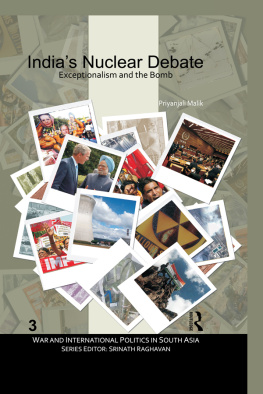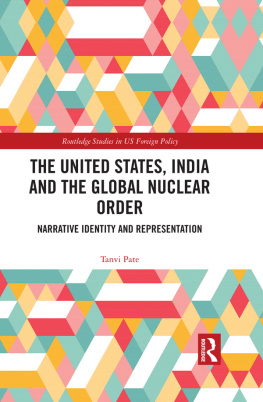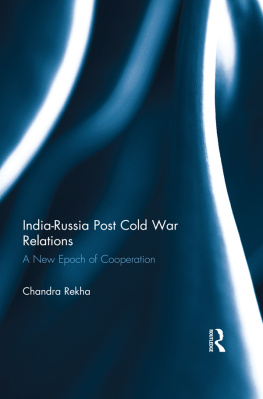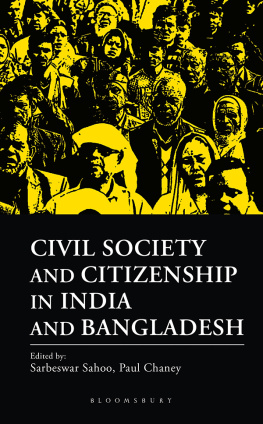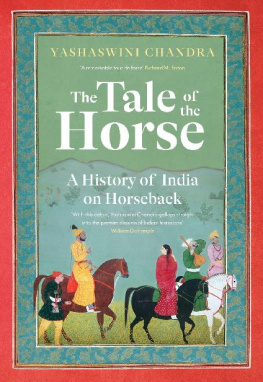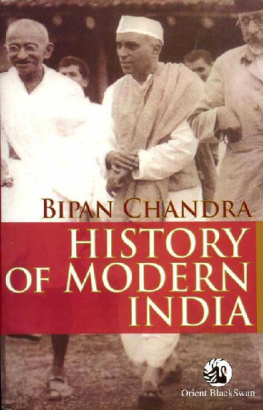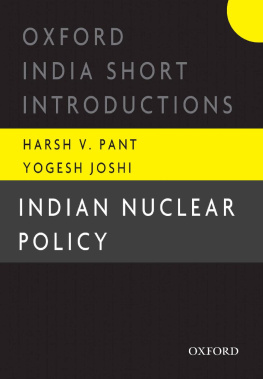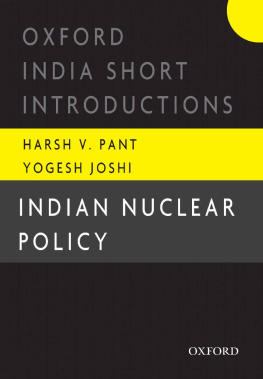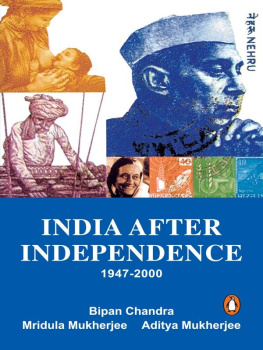
Society, Resistance and Civil Nuclear Policy in India
This book explores how anti-nuclear social movements impact the states civil nuclear policy and its implementation by presenting a historicalcomparative case study of anti-nuclear movements in India.
Drawing on social movement theory and empirical methods, the book demonstrates that the ability for anti-nuclear movements to impede the inception of nuclear plants a key element of Indias civil nuclear policy is determined by the movements collective action repertoires, the politicisation of nuclear power and the states larger developmental paradigm, and the openness of state input structures. The case studies of anti-nuclear movements in Haripur, Kudankulam and Kovvada demonstrate how the implementation of civil nuclear policy is also determined by the states technical and financial capacity and effective international collaboration.
With a focus on theorisation of social movements and their impact, combined with empirical studies of anti-nuclear movements, as well as the historical trajectory of civil nuclear development, the book adds a new prism to the study of Indias civil nuclear policy and anti-nuclear opposition. It will be of interest to researchers working on social movements, statesociety relations, energy studies and civil nuclear energy in the context of South Asia and the Global South.
Varigonda Kesava Chandra is Research Associate at the Asia Research Institute, National University of Singapore, Singapore.
Routledge Advances in South Asian Studies
Edited by Subrata K. Mitra, Heidelberg University, Germany, and Rani Mullen
College of William and Mary, United States
South Asia, with its burgeoning, ethnically diverse population, soaring economies, and nuclear weapons, is an increasingly important region in the global context. The series, which builds on this complex, dynamic and volatile area, features innovative and original research on the region as a whole or on the countries. Its scope extends to scholarly works drawing on history, politics, development studies, sociology and economics of individual countries from the region as well those that take an interdisciplinary and comparative approach to the area as a whole or to a comparison of two or more countries from this region. In terms of theory and method, rather than basing itself on any one orthodoxy, the series draws broadly on the insights germane to area studies, as well as the tool kit of the social sciences in general, emphasising comparison, the analysis of the structure and processes, and the application of qualitative and quantitative methods. The series welcomes submissions from established authors in the field as well as from young authors who have recently completed their doctoral dissertations.
Ethno-Political Conflict in Pakistan
The Baloch Movement
Rizwan Zeb
Perspectives on Contemporary Pakistan
Governance, Development and Environment
Ghulam Ali and Ejaz Hussain
Radicalization in Pakistan
A Critical Perspective
Edited by Muhammad Shoaib Pervez
Society, Resistance and Civil Nuclear Policy in India
Nuclearising the State
Varigonda Kesava Chandra
For a full list of titles, please see: www.routledge.com/asianstudies/series/RASAS
Society, Resistance and Civil Nuclear Policy in India
Nuclearising the State
Varigonda Kesava Chandra
First published 2021
by Routledge
2 Park Square, Milton Park, Abingdon, Oxon OX14 4RN
and by Routledge
52 Vanderbilt Avenue, New York, NY 10017
Routledge is an imprint of the Taylor & Francis Group, an informa business
2021 Varigonda Kesava Chandra
The right of Varigonda Kesava Chandra to be identified as author of this work has been asserted by him in accordance with sections 77 and 78 of the Copyright, Designs and Patents Act 1988.
All rights reserved. No part of this book may be reprinted or reproduced or utilised in any form or by any electronic, mechanical, or other means, now known or hereafter invented, including photocopying and recording, or in any information storage or retrieval system, without permission in writing from the publishers.
Trademark notice: Product or corporate names may be trademarks or registered trademarks, and are used only for identification and explanation without intent to infringe.
British Library Cataloguing-in-Publication Data
A catalogue record for this book is available from the British Library
Library of Congress Cataloging-in-Publication Data
Names: Chandra, Varigonda Kesava, author.
Title: Society, resistance, and civil nuclear policy in India : nuclearising the state / Varigonda Kesava Chandra.
Description: Abingdon, Oxon ; New York, NY : Routledge, 2021. |
Series: Routledge advances in South Asian studies |
Includes bibliographical references and index.
Identifiers: LCCN 2020028497 | ISBN 9780367561468 (hardback) |
ISBN 9781003100348 (ebook)
Subjects: LCSH: Antinuclear movementIndiaCase studies. |
Nuclear energyGovernment policyIndiaCase studies.
Classification: LCC JZ5574 .C53 2021 | DDC 333.792/40954dc23
LC record available at https://lccn.loc.gov/2020028497
ISBN: 978-0-367-56146-8 (hbk)
ISBN: 978-1-003-10034-8 (ebk)
Typeset in Times New Roman
by Newgen Publishing UK
Contents
This work began as a doctoral thesis in the South Asian Studies programme, National University of Singapore. It was researched and written over a span of five years, from 2015 to 2019. The thesis was then converted into this book largely during my time as Research Associate at the Asia Research Institute (ARI), National University of Singapore.
I wish to first acknowledge the team at Routledge, Taylor and Francis, Professor Subrata Mitra in particular, Professor Rani Mullen and Dorothea Schaefter, and Alexandra de Brauw, for their encouragement and assistance.
I wish to acknowledge my supervisors and mentors without whose help this book would not have been possible. Professor Subrata Mitra, my supervisor for much of the doctoral studies, has been an unfailing mentor and guide throughout; it was through his guidance that most of the key ideas explored within this thesis have been fleshed out the way they are. His gentle humour, support, and belief in my work has been of immense importance, especially during the many phases of self-doubt. Professor Gyanesh Kudaisya, my co-supervisor, provided important support, guidance and feedback throughout the four years. The training obtained from him in historical methods and archival research has been of key importance in this thesis. Professor Manjusha Nair, another co-supervisor, also provided valuable guidance and feedback, especially in deriving the theorisation. Finally, I also wish to thank Professor Rajesh Basrur of the S. Rajaratnam School of International Studies (RSIS), under whom I first began studying civil nuclear policy. I wish to also thank the reviewers of my doctoral thesis: Professor Kanti Bajpai, of the Lee Kuan Yew School of Public Policy (LKYSPP), Professor John Doyle of Dublin City University and Professor Ronojoy Sen of the Institute of South Asian Studies, for their constructive critique and encouragement.





